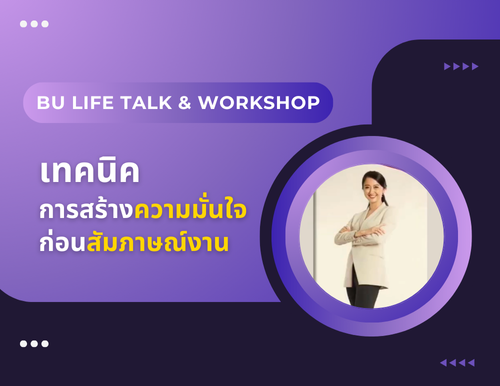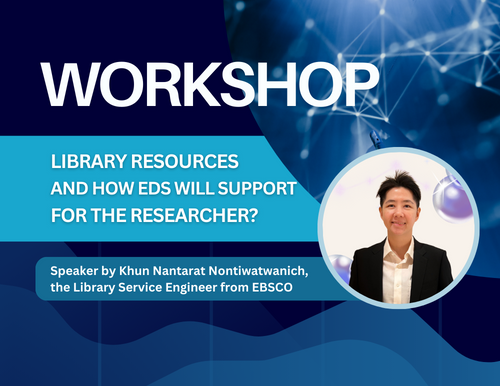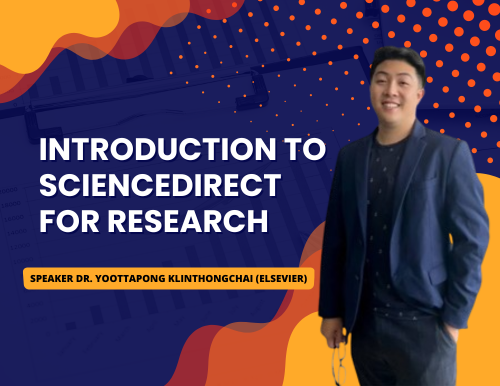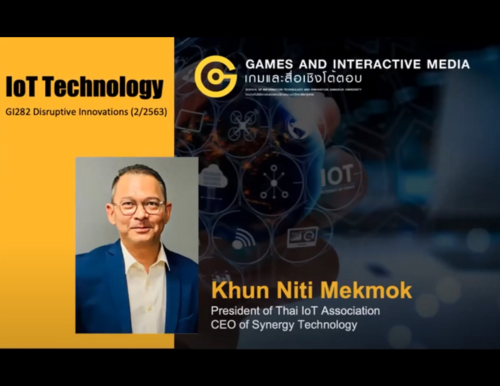The EBSCO database involves searching and accessing high-quality academic articles and research. The steps include targeted searching, reading, downloading, and saving desired articles in the system. Filters and advanced search functions help narrow down results to better match specific needs.
การสร้างสรรค์ที่เกิดขึ้นจากความหลงใหลหรือแรงบันดาลใจภายในตัวบุคคล เป็นการนำความรักในสิ่งที่ทำมาผสมผสานกับความคิดสร้างสรรค์ ทำให้เกิดผลงานหรือแนวคิดที่ไม่ซ้ำใครและมีความเป็นตัวเอง โดย อ.สราวุฒิ สำเนียงดี
การบรรยายเกี่ยวกับการใช้ข้อมูลความต้องการของลูกค้า (Customer Insight) นำมาพัฒนาเป็นผลิตภัณฑ์และบริการใหม่ของพฤกษา เพื่อตอบสนองไลฟ์สไตล์ยุคใหม่และเทรนด์ความใส่ใจด้านสุขภาพและการใช้ชีวิตในยุคโควิด โดย Kamolsri Autsawaphakorn
การบรรยายเกี่ยวกับเทคนิคการสร้างความมั่นใจก่อนสัมภาษณ์งาน ในเทสที่เราสร้างและร่างที่เราเป็น กับภาษา 3 ทาง การสร้างความน่าเชื่อถือ การสร้างความไว้ใจ และการสร้างความประทับใจแรกพบ โดย คุณสุพรรณิการ์ บุตรรัตน์
Lao economy, Lao job market & labor law, AEC and labor mobility, demand for talents, get yourself ready and about 108JOB By Keovisouk Dalasane
Lao economy, Lao job market & labor law, AEC and labor mobility, demand for talents, get yourself ready and about 108JOB By Keovisouk Dalasane
Lao economy, Lao job market & labor law, AEC and labor mobility, demand for talents, get yourself ready and about 108JOB By Keovisouk Dalasane
This workshop covers advanced searching and the more sophisticated of databases in the EBSCOhost platform. Library Resources, What is EDS and how it works?, Techniques in “Feature & Setting”, How EDS support the researcher. By Nantarat Nontiwatwanich on January 20, 2024
This is a method for researching information related to the ScienceDirect database, which covers research in fields such as business management, accounting, computer science, scientific decision-making, economics and finance, engineering, psychology, and social sciences. on December 9, 2023
การบรรยายแบบออนไลน์ เรื่อง IoT Technology โดย Khun Niti Mekmok, President of Thai IoT Association and CEO of Synergy Technology
เมื่อวันที่ 3 กุมภาพันธ์ 2564 เป็นส่วนหนึ่งของวิชา GI282 Disruptive Innovation ปีการศึกษา 2563







